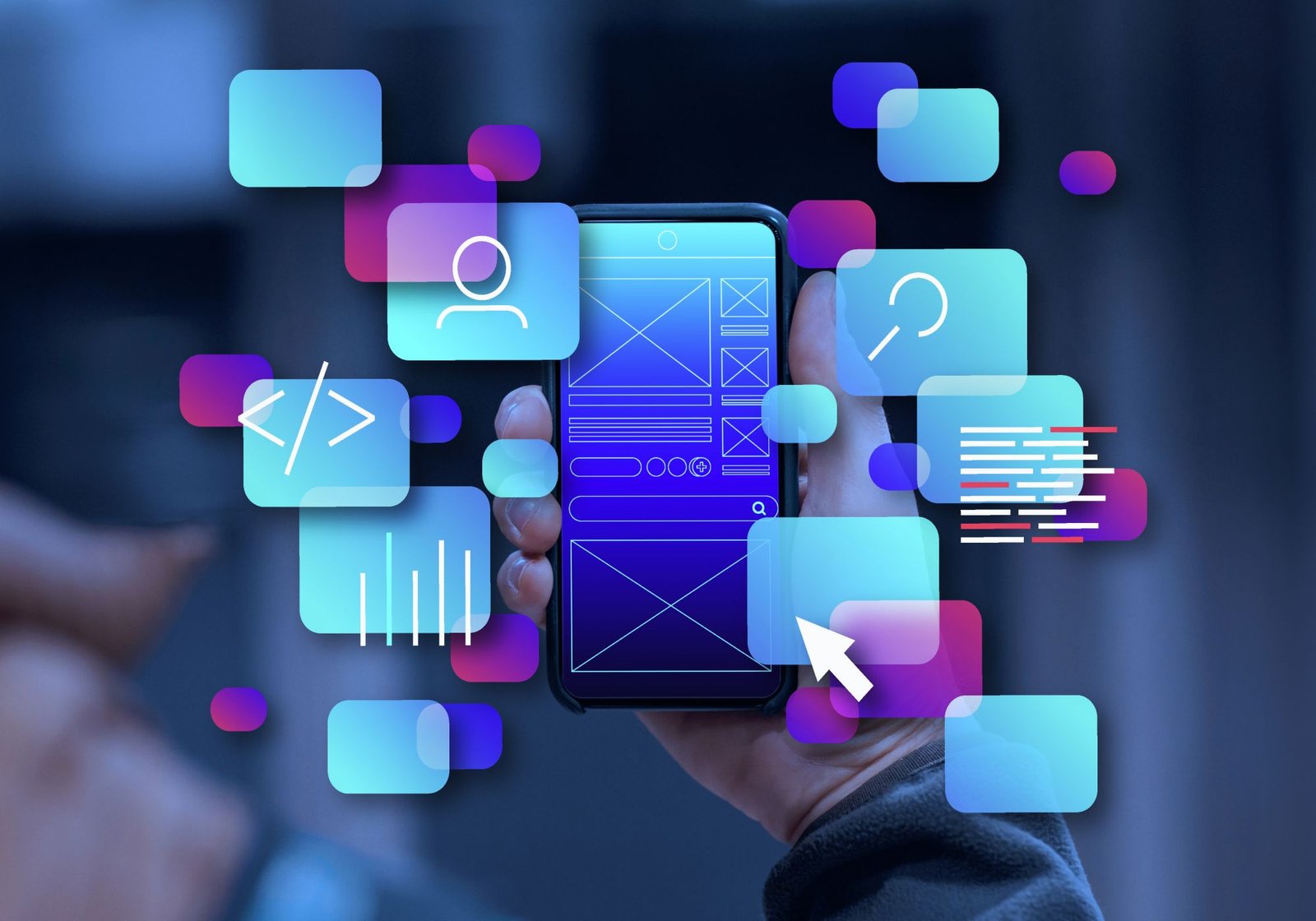In 2025, mobile apps will continue to play a pivotal role in shaping how we live, work, and connect. With advancements in technology, mobile apps are becoming more intuitive, efficient, and integrated into everyday life. Whether you’re a business looking to develop a cutting-edge app or a developer eager to stay ahead of the curve, understanding the key trends shaping the future of mobile apps is essential. This article explores the top tech trends that will define mobile app development in 2025.
Why Mobile App Development is Evolving
Mobile app development is an ever-evolving field. As technology advances at a breakneck speed, developers are constantly faced with new challenges and opportunities. To stay competitive, businesses need to stay updated with the latest trends that are shaping mobile apps. With technologies like AI, 5G, and augmented reality, the mobile app development industry is set for revolutionary changes in the near future.
For businesses looking for the best mobile app development services in USA, keeping up with these trends will ensure your app stays relevant and engaging.
The Rise of Artificial Intelligence (AI) in Mobile Apps
AI is making waves in nearly every tech industry, and mobile app development is no exception. In 2025, we can expect to see AI-powered apps becoming more intelligent, efficient, and personalized. From AI-powered chatbots to predictive analytics, mobile apps are integrating AI to create more intuitive and responsive experiences.
AI-Powered Personalization
Incorporating AI into mobile apps allows businesses to offer personalized experiences. Apps can analyze user behavior and preferences, providing tailor-made recommendations, content, and services. Whether it’s e-commerce or fitness, AI will help businesses boost user engagement by creating more relevant and engaging experiences.
5G Connectivity: A Game Changer for Mobile Apps
5G technology will bring faster internet speeds, lower latency, and more reliable connections. For mobile apps, this means a whole new level of performance. Apps that require high-speed data transfer, such as gaming, video streaming, and AR/VR, will benefit immensely from 5G.
Improved User Experience
With 5G, users will enjoy smoother experiences when using mobile apps. Apps will load faster, and data-heavy features like high-definition video streaming and augmented reality will work seamlessly, even on the go.
Augmented Reality (AR) and Virtual Reality (VR)
Augmented and Virtual Reality technologies are no longer just a futuristic concept. In 2025, we will see these immersive technologies being integrated into mobile apps across various industries.
AR for Shopping and Education
Retailers will use AR to create virtual fitting rooms, allowing users to try on clothes virtually before making a purchase. Educational apps will use AR to provide interactive learning experiences, making learning more engaging and effective.
VR for Immersive Experiences
VR will take mobile gaming, entertainment, and even remote work to the next level. Expect more apps that provide fully immersive experiences, such as virtual travel tours or VR meetings.
Blockchain Technology for Secure Mobile Apps
Blockchain is making its way into mobile app development as a powerful tool for security and data integrity. In 2025, blockchain will be used in apps to enhance transparency, security, and data privacy.
Decentralized Apps (DApps)
Blockchain will allow developers to build decentralized apps (DApps), where users have control over their data and transactions. This is particularly beneficial for industries like finance, healthcare, and real estate.
Secure Transactions
Mobile apps that involve financial transactions will leverage blockchain for added security, preventing fraud and ensuring that data is encrypted and immutable.
The Impact of Cloud Technology on Mobile Apps
Cloud technology has already transformed how mobile apps store and access data. In 2025, we’ll see even more mobile apps leveraging the cloud for seamless data synchronization and enhanced scalability.
Cloud-Based Mobile Apps
With the cloud, apps can provide a more seamless experience by allowing users to access their data across devices without hassle. Cloud-based mobile apps can also scale quickly to accommodate a growing user base.
Collaborative Features in Apps
The cloud will enable better collaboration features in mobile apps, particularly in business apps. Real-time document editing, file sharing, and collaborative projects will be easier and more efficient.
IoT Integration in Mobile Apps
The Internet of Things (IoT) refers to the interconnected network of physical devices, vehicles, and appliances that communicate with each other. In 2025, IoT will be more integrated into mobile apps, giving users control over various smart devices directly from their smartphones.
Smart Homes and Cities
Expect mobile apps to become central hubs for managing smart homes, from controlling lights and security systems to monitoring energy consumption. Similarly, IoT will play a key role in smart cities, where mobile apps will be used to manage everything from traffic systems to waste disposal.
Voice Search and Voice-Activated Apps
Voice assistants like Siri, Google Assistant, and Alexa have already gained widespread adoption, but in 2025, voice search and voice-activated mobile apps will become even more advanced.
Voice Search Optimization
As voice search continues to rise in popularity, developers will need to optimize mobile apps for voice commands, allowing users to interact with apps in a hands-free manner. This will provide a more convenient and efficient user experience.
Progressive Web Apps (PWAs)
Progressive Web Apps are an emerging trend that combines the best features of both websites and mobile apps. PWAs can be accessed through a browser but offer the same experience as a native mobile app.
Faster Load Times
PWAs are known for their lightning-fast load times, providing users with an app-like experience without the need to download anything from an app store. This will make PWAs an attractive option for businesses looking to reach a larger audience.
App Security: A Growing Concern
As mobile apps collect more personal data, security becomes a critical concern. In 2025, developers will need to implement advanced security measures to protect user information and ensure app safety.
Biometric Authentication
Fingerprint scanning, facial recognition, and voice authentication will become more common in mobile apps, offering users a more secure way to access their apps.
The Future of Mobile App Development: What It Means for Businesses
As we approach 2025, mobile app development will continue to evolve, offering new opportunities for businesses to engage with their customers. For businesses seeking mobile app development solutions in USA, staying ahead of these trends is crucial.
Adapting to Change
To stay competitive in the fast-paced world of mobile app development, businesses must be ready to adapt to emerging technologies. Whether through AI integration, adopting 5G connectivity, or enhancing app security, companies must stay ahead of the curve.
Conclusion: Devherds’ Role in Shaping the Future of Mobile Apps
As the mobile app landscape continues to evolve, partnering with the right mobile app development company in USA can ensure your business stays at the forefront of innovation. Devherds is a leading mobile application development company in USA, providing top-notch solutions that integrate the latest technologies into your mobile apps. With a focus on AI, 5G, AR, blockchain, and more, Devherds offers cutting-edge mobile app development services in USA to help your business thrive in 2025.
FAQs
1. What are the top mobile app development trends in 2025?
The top trends include AI-powered personalization, 5G integration, AR/VR features, blockchain technology, and enhanced app security.
2. How can Devherds help in mobile app development?
Devherds is a leading mobile app development company in the USA that offers custom solutions based on the latest tech trends, ensuring your app is future-ready.
3. Why is 5G important for mobile apps?
5G offers faster speeds, lower latency, and more reliable connections, which can drastically improve the performance and user experience of mobile apps.
4. How will AR and VR change mobile apps in 2025?
AR and VR will provide more immersive experiences in gaming, shopping, education, and business, enhancing user engagement and interaction.
5. How do progressive web apps differ from native apps?
PWAs combine the best of both websites and mobile apps. They load faster, require no downloads, and offer a seamless experience across devices.







Leave a Reply